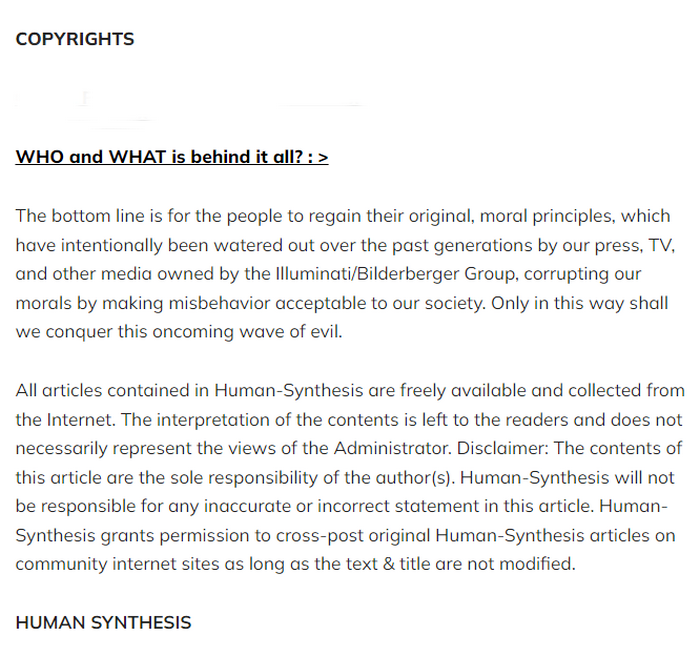‘The bombs are still falling in Ghaza. My heart breaks every day.
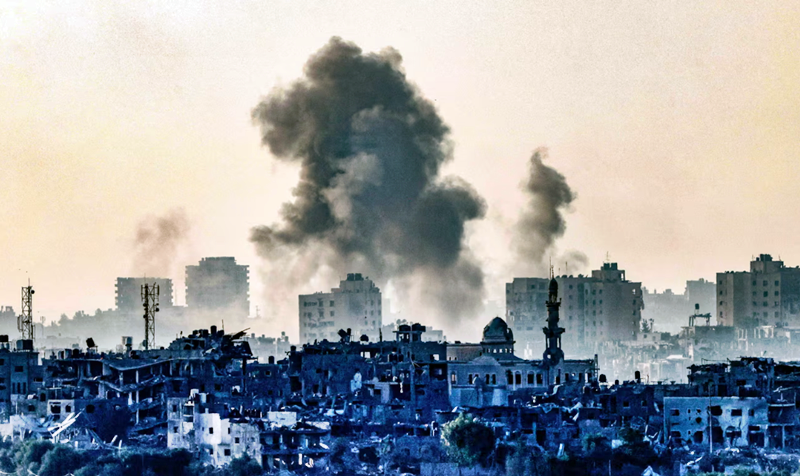
By The Guardian - Sally Rooney/Isabella Hammad - Sun 17 Dec 2023
Novelists Sally Rooney and Isabella Hammad on the Israel-Palestine conflict. For several weeks, the authors have been in conversation about their response to the current crisis and the role of art in political resistance
Sally Rooney: In the middle of November, as the catastrophe in Gaza intensified, I was asked to take part in a public event with the British-Palestinian author Isabella Hammad. We were invited to discuss our work as novelists, and the role of writers and artists generally, in the context of current events. I was unable to travel at the time, but I suggested that we might conduct a conversation over email instead, to publish our exchange.
In both her novels and her nonfiction – such as her recent Edward Said memorial lecture, Recognising the Stranger, delivered at Columbia University, New York, in September – Hammad writes about Palestinian life with profound intelligence, insight, and subtlety.
Her first novel, The Parisian, was based on the story of her great-grandfather, Midhat Kamal, who as a young man returned from France to his hometown, the Palestinian city of Nablus, at the end of the First World War and the start of the British occupation of Palestine. Her second novel, Enter GhostFirst, is about an Arabic production of Hamlet in the West Bank in the summer of 2017.
Over World War two weeks, into early December, our exchange ran to almost 10,000 words. What follows is an excerpt from our correspondence, edited for brevity and clarity.
Sally Rooney: Hi Isabella. I want to thank you, in advance, for making the time to have this conversation with me. It’s difficult to know how to begin talking about the scale of the present situation in Palestine and Israel: the scale of the violence, as well as the moral gravity, and the political and historical significance of these events.
First and foremost, of course, I’m thinking of the mass killing of civilians, both in Israel on 7 October and a far more colossal scale in Gaza ever since that date. The intensity and breadth of the violence against civilians in Gaza, and the level of international consensus on the acceptability of that violence, feel like something unprecedented in my lifetime. And I’m also thinking of the simultaneous and related destruction of Palestinian culture and history – the demolition of universities, mosques, streets, and neighborhoods, particularly in Gaza City.
One of my instincts, as you and I begin our exchange, is to acknowledge my position as an “outsider” to all of this. There’s a part of me that wants to say I should stay silent and leave these conversations to people who know better. But in another way, as a European, I am very much implicated in what’s happening. Israel’s geopolitical power is partly founded on its relationship with its ally and largest trading partner, the EU. Of course, you know all this. In your fiction, you dramatize in very interesting and open-ended ways these relations between Palestine, Israel, and Europe.
Your recent novel, Enter Ghost, includes a beautiful scene in which two women are talking about the relations between art and political resistance. One of these women, Mariam, is directing a stage production of Hamlet to be performed in the West Bank; the other, our narrator Sonia, is an actor playing the part of Gertrude.
Mariam speaks in this scene about the danger “that art might deaden resistance, by softening suffering’s blows through representing it”. Sonia suspects that Mariam doesn’t believe this; what she really wants is for Sonia “to supply the counter-argument, because the counter-argument was what she wanted to believe”.
But this exchange is left curiously – and I think productively – unfinished. The “counter-argument” both characters seem to want to hear, and which the reader probably also wants to hear, never quite makes it onto the page. Maybe the novel itself is the counter-argument, in the sense that it stages its Hamlet scenes side-by-side with scenes of appalling political and military repression, and still succeeds in making us care about the success of the play.
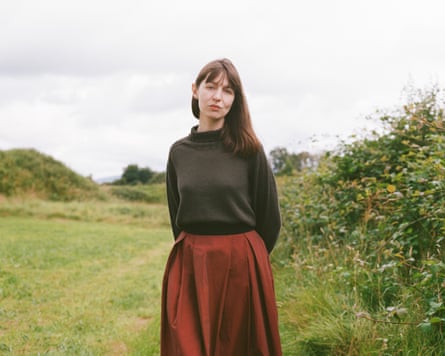
I wonder if you might want to talk a little about this relationship between artistic-intellectual work, and political organizing and resistance, as it strikes you at this moment. What is the role of artists and intellectuals at a time like this? Even as I use that phrase, “a time like this”, I feel I’m getting something wrong. I don’t think there ever has been a time exactly like this before. But maybe you can tell me what you think.
Isabella Hammad: Hi Sally. A few people have asked me versions of this lately – the question of what artists in particular are supposed to do at this moment. I wonder if the question is partly a way of expressing horror not only at the sheer tremendousness of this violence, which is being enacted on an industrial scale – a scale that brings humanity so close to inhumanity that I think that for many it shakes the very sense of what we, as humans, actually are – but also at the way violence can make art-making seem quite futile and feeble, something easily crushed.
It’s easy to feel useless, and from there, it’s a short leap to despair. But I don’t believe we can afford to despair, nor do I think despair is ethical.
When this started, by which I mean when this latest most astonishing round of violence started, thinking coolly or analytically felt impossible to me. I had this feeling that I should simply feel what was happening and engage with the tragedies and killing and the loss and that any expression other than grief was somehow perverted.
But the ethnic cleansing of Palestinians, which began in 1948, continues at a staggering speed, including attempts at mass transfer not only in Gaza but in the West Bank too. And I am increasingly certain that racism and the forces that lead to this kind of genocidal violence are, in essence, non-thinking. Racism, it seems to me, is usually not calculated but is rather a form of stupidity: it’s the absence of thought. That’s why it is very important to think and speak as clearly as we can.
Of course, I do also believe in the political value of slow forms, of art-making, even if this value is quite intangible and unpredictable, and even if I fairly regularly experience crises of faith. People with different professions and temperaments might be more suited to quick action; the present extremity of violence will eventually crest (even though this is very difficult to think about right now) and the tempo will shift and the slow people will become useful again.
And at the same time, there are shorter-term things we can all do, like speak truth to power when power is lying. We can try to lift up the voices that are being suppressed or drowned out. We can insist on history, facts, and humanism.
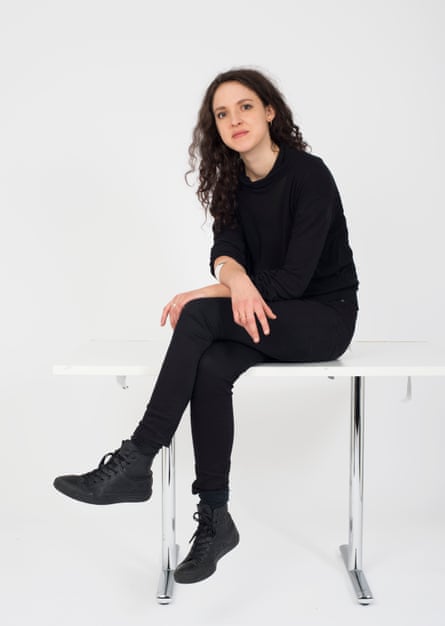
But, also, artists and intellectuals are just people of the world. We need to hold on to the very basic democratic principle that the exercise of individual agency becomes powerful en masse. I think there has been a real apathy in the past few decades about the importance of maintaining consensus around democratic principles as if these will just continue to exist on their own without us fighting to keep them. People in the global north have short memories.
These principles and institutions were hard-won, and they arrived on the back of colossal global violence. The Geneva Conventions, and the Universal Declaration of Human Rights – have been around for less than a century and they are becoming meaningless. This terrifies me. And it should terrify everyone – it has implications for everyone, not just Palestinians.
As for that scene in my novel where two characters debate the role of art in political struggle, I think it plays a very important role, so I don’t agree with Mariam there. But I think it’s misguided to believe a single work of art can, by itself, act quickly and significantly on the world; this seems like a category error. Is this something you think about?
And could you tell me a bit more about Irish solidarity with Palestinians, and maybe, if you don’t mind, your own?
Best,
Isabella
SR: The Irish situation is a curious one. On the one hand, there is a real and widespread solidarity with Palestinians among the people of Ireland, which is reflected, to an extent, in our political class. But on the other hand, Ireland as a nation state is integrated very much into the institutions of the dominant powers. So there’s a tension there. For instance, in the past few years, the Irish parliament passed a piece of legislation criminalizing trade relations with illegal Israeli settlements.
But under international pressure, particularly from the US, our government blocked that legislation. Trade with the illegal settlements is still going on now. Maybe that offers an illustration of Ireland’s position, in a way. We are at once a former (and partly current) colonial subject, with all the ideological sympathies that implies; and at the same time we’re a wealthy European country, with a very close relationship with the US, and all that entails. That was always a contradiction, but the intensity of that contradiction is heightening now.
In my own experience as an Irish writer, I always felt relatively free to “speak out” about Palestine. Nobody, as far as I know, ever seriously objected to anything I said or wrote. It was only when I decided to join the cultural boycott – by declining a book deal with an Israeli publishing house that was complicit in the occupation – that my opinions suddenly became controversial, if not at home then certainly internationally.
That was interesting to me because it seemed to show where the real political lines were drawn, at the time. It showed that my former sense of freedom to “speak out” had been grounded in the simple fact that nobody cared what I said.
There is a real solidarity with Palestinians among the people of Ireland
It occurs to me that that situation seems to be changing now. Speech – even very moderate speech – from cultural figures in Europe and the US is becoming a site of more intense political repression. You have actors writers and athletes losing their jobs just for signing petitions or putting up social media posts.
At the same time, we’re seeing unprecedented levels of public protest and demonstration against the violence in Gaza. I wonder whether the increasing movement to suppress public speech on this issue might indicate that solidarity with Palestine in the global north is becoming a more serious policy problem for Israel. Do you think that’s the case? Or am I being too optimistic about that?
You mention in your message the danger that international humanitarian law is losing meaning now. I agree that does feel dangerous. But then, as we both know, Israel refuses to ratify many of the key agreements that make up international law, and also flagrantly violates even those treaties it has ratified (very much following the playbook of the US). And no one does anything.
International law has proven completely ineffective to prevent the crimes of the US and its allies, and equally ineffective at imposing any consequences after the fact. If I’m right about that, what do you think there is to salvage from the project of international law? Just the ideals, the principles? In that case, why call it “law” at all, why not call it “international wouldn’t it be nice”? I know I must sound cynical. But right now I find it hard not to be.
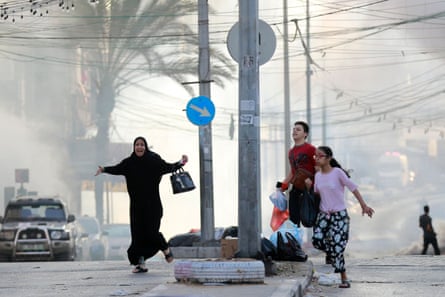
IH: It’s true, international law is meaningless if there is no political will to enforce it. The discourse of human rights has always failed peoples of the global south: it was produced almost entirely by Europeans, did not address coloniality, and took the nation-state as the framework without accounting for indigenous peoples and their rights, for example.
Also, the Declaration of Human Rights was written and ratified in 1948, the same year as the Nakba [“the catastrophe”] and the founding of Israel. This is sort of a weird fact. That same year 750,000 Palestinians were driven from their homes, and meanwhile, the UN was signing this abstract document about universal principles.
Then Israel was admitted into the UN on condition that it implement resolutions 181, on internationalizing Jerusalem, and 194, which “resolve[s] that the refugees wishing to return to their homes and live at peace with their neighbors should be permitted to do so at the earliest practicable date and that compensation should be paid for the property of those choosing not to return”.
Israel did not do any of this. So from the very beginning, the “universality” of this declaration was questionable and the people who immediately fell out of its purview were the Palestinians.
Even if the origin of the discourse itself is flawed, though, should not protecting human rights still be some kind of baseline? I know the discourse comes out of the UN, which came out of the League of Nations, which came out of European imperial power, and the whole system needs an overhaul, but is it not at least one implement, one framework that is broadly legible across different countries, that might, if applied, be used to restrain an otherwise pretty horrible “might is right” attitude of post-imperial or neo-imperial nation states hungry for power? Do you think this is outweighed by the way that human rights discourse ends up functioning like a fig leaf for the crimes of the powerful?
Speech in support of Palestinian rights in the West has been repressed for a long time, but the repression is indeed happening more in the open now, and it is happening at scale. I do think the backlash is a sign of fear: repressing speech is an indication that speech is powerful. And perhaps it happens more at moments when speech is seen as particularly powerful (which would explain the change you experienced).
I don’t know how we are going to survive this. I think we will never be the same
Whether we should be optimistic, though, I don’t know. It’s good to feel encouraged, so long as that doesn’t lead to complacency. Solidarity with Palestinians may be waking up in what you call the “imperial core” (which is also what I think people are often referring to when they talk about “the international community” –especially the US, the UK, France, and Germany), but at what cost?
The numbers killed, maimed, people without any family, small children without parents… the mass graves. At the moment international solidarity has not even produced the bare minimum: a ceasefire. The bombs are still falling. My heart breaks every day. It’s unbearable.
SR: On a few occasions recently, when I’ve been feeling almost inured to the imagery of violence, some particular report or photograph or video has suddenly left me speechless, lost, unable even to think. I had one of these moments yesterday, seeing footage online of a mass grave. The footage showed a rough trench in which dozens or maybe hundreds of bodies had been laid, bound in blue cloth, and a mechanical digger was shoveling earth into the trench.
I’ve since read that these bodies had been brought from al-Shifa Hospital, which is now under Israeli occupation, to Khan Yunis, to be buried. How is it possible to describe such a scene? As if it’s happening in a film or a novel; as if I’m trying to tell you about something I’ve seen in an episode of a television show. But this is our world, the world in which soil is shoveled over the unmarked bodies of the dead.
I’m at a loss to understand this. Nothing can make sense of it. Everything in me rebels against what I’m witnessing. And I think of everything I’ve written to you until now, about geopolitics, about public opinion in the West, and I think: how pointless! Some celebrity said something on Instagram, and I’m asking you whether this is cause for optimism.
Every time I pick up my phone I see footage of destroyed neighborhoods, grieving mothers, and mass graves. It makes everything I have to say feel absurd and disgusting. In these moments I lose faith in language, in conversation, dialogue, everything. The only word that means anything to me at such a moment is the word: No. And all I want to do is repeat it to myself again and again, seeing these images of devastation and suffering. No, no, no.
What term can describe the mass killing starvation and psychological torture that is being inflicted on the Palestinian people, if not, as you say, genocide? And to talk about that, we need to start with a shared language, shared definitions. Of course, you’re right to point out that this is something international law offers us, despite its flaws.
I recently read a piece by the Palestinian legal scholar Rabea Eghbariah, in which he wrote: “We do not have the privilege to relinquish any legal tools available to name the crimes against the Palestinian people in the present and attempt to stop them.” However frustrated and cynical I might feel about international law, I can’t forget that the work being done in this area by historians and legal scholars like Eghbariah, and the Israeli historian Raz Segal, is more important than ever right now.
I’m also thinking of the American civil rights activist Mario Savio, who was speaking about racial segregation when he said in 1964: “There’s a time when the operation of the machine becomes so odious, makes you so sick at heart that you can’t take part! You can’t even passively take part!
And you’ve got to put your bodies upon the gears and the wheels, upon the levers, upon all the apparatus – and you’ve got to make it stop!” It puts me in mind of the anti-war activists right now who are shutting down the factories of weapons suppliers, who are blocking military vessels, who are putting their bodies on the gears and the wheels of this machine. How vital and courageous that kind of work is too.
IH: Thank you for the honesty of your last message. I don’t know how we are going to survive this. I think we will never be the same.
After the first three weeks, I decided I needed to get a grip. I’d missed my flight from the US, I somehow got the day wrong, I wasn’t eating meals and my tongue swelled so much it had the indents of my teeth on either side, I couldn’t hold a conversation and I forgot names and places, and then last week I was, for some weird reason, finally operating fairly normally – yes, in a daze and with a brick on my chest but I was even doing work.
I was going on marches and undertaking a normal level of political activity until, I think it was the day I wrote my first response to you, maybe it was because writing demanded that I think a tad more deeply again, or maybe it was because someone had just texted me that a colleague had lost his parents and his older sister and all her children in the bombing but I just lost my shit, as they say. It was like the lid of the box flew off. I don’t know if I’ve ever had a meltdown like that before.

I am also, I want to say, filled daily with an enormous amount of shame. I know that I do try and that I’m limited like anyone, and at the same time, Sally, I feel so ashamed of myself that I am to all ostensible purposes fine and people in Gaza are being massacred.
I said in my first message that at first I’d thought talking and writing seemed pointless, as you say, and they may continue to feel incredibly difficult, but talking and thinking as clearly as we can, even as we understandably do not feel cool-headed, is so important, it is our responsibility when the politicians are telling the public that this is too complicated to understand. They are lying. Just as they are lying when they say that what they are carrying out is moral or proportionate.
Unfortunately, what people write or post on Instagram does matter. The war on Palestinians has always been a war of language, a war of propaganda and PR. It is a project that has relied on Western military support since its inception.
Without the consent of the Western public and without that military support (to date, $172bn in US largely military aid and missile defense funding; Israel is the largest international recipient of US aid bar none), Israeli apartheid would not survive. So these do matter. Language is not small, even though, in our hearts, of course, what matters most is this terrible brutal waste of human life.
I’m happy you brought up Rabea’s piece. The most important thing he writes about there, for me, is the framework of the Nakba. All massacres are unique, and it’s high time the ongoing catastrophe suffered by the Palestinians was described internationally using the terms used by Palestinians. Colonized people still have agency, even if the structural decks are stacked against them. There’s a wealth of analytical, strategic, and philosophical thought and practice among Palestinians that should be engaged with. And the Nakba is a place to start.
When the former Albanian dictator Enver Hoxha delivered his New Year message back in 1967, he pulled the cord marked “truth bomb”. “This year will be harder than last year,” he declared. “It will, however, be easier than next year.” I mean … on the one hand: thanks for not sugar-coating it, Enver. On the other: way to kill the party buzz, you monster!
I don’t want to murder the atmosphere (or indeed any dissidents) by reminding you of the news year you’ve just lived through – or by warning you of the news year you’re about to live through. It’s not big, it’s not clever, and it’s sure as heck not seasonal.
With that, it simply remains is for me to wish you a very happy holidays, and a splendid new year. Goodness knows you’ve earned it.
Marina Hyde
